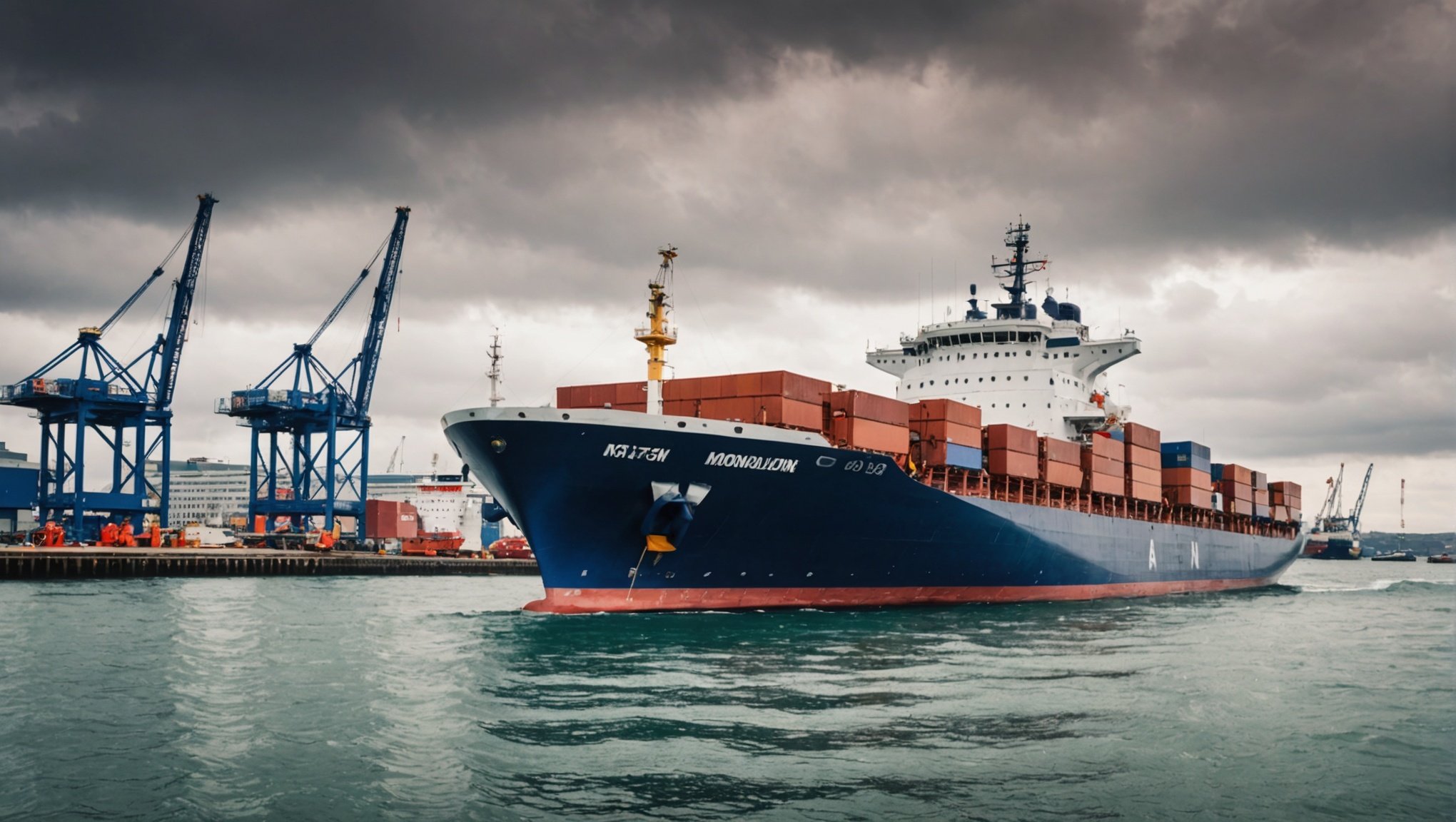Overview of UK and Global Maritime Laws
Understanding maritime laws and their impact on shipbuilding is crucial for ensuring seamless operations. These laws often encompass safety, environmental standards, and crew welfare. Key laws include the International Convention for the Safety of Life at Sea (SOLAS), which prioritises the safety of vessels and passengers. Furthermore, the International Maritime Organization (IMO) sets standards that govern the shipbuilding process, ensuring compliance with global safety and environmental protocols.
On a global scale, regulatory frameworks such as the IMO’s Marine Environment Protection Committee (MEPC) highlight the importance of reducing marine pollution. These global regulations are pivotal in maintaining ecological balance and protecting sea habitats from ship-related pollutants. Additionally, the Ballast Water Management Convention is another critical regulation demanding adherence to prevent invasive aquatic species transfer.
In parallel : Unlocking Financial Assistance: A Comprehensive Guide for New Small Businesses in the UK
Compliance with these standards is not merely a legal requirement but also a foundational element for ethical maritime operations. The adherence to compliance standards ensures operational continuity and avoids significant penalties. Shipbuilders and operators must stay informed and align their processes with these laws to foster industry integrity and support sustainable maritime ecosystems. This commitment to compliance ultimately translates into safer and more efficient maritime operations worldwide.
Compliance Frameworks for Shipbuilding Companies
Navigating the maritime industry requires precision and adherence to multiple compliance frameworks to ensure regulatory compliance. These frameworks serve as structured guidelines that help shipbuilders conform to various laws and regulations pertinent to their operations. A strong compliance framework is not merely about meeting legal standards; it underpins the ethical and safe conduct of business activities.
Topic to read : 5 Reasons You Need Precalculus Tutoring
Shipbuilding companies adopt these frameworks as a blueprint to systematically address compliance challenges. For example, frameworks like the International Safety Management (ISM) Code ensure that safety practices on ships meet global standards. The framework delineates protocols for crew training, equipment maintenance, and operational procedures, fostering safer and more efficient maritime operations.
Implementing compliance frameworks also aids in mitigating risks associated with legal non-conformance. For instance, the European Regulations on ship recycling mandate environmentally sound disposal of ships, encouraging sustainable practices in the industry. Such frameworks, effectively applied, enable companies to operate within legal bounds and uphold their reputation.
Successful implementation examples include companies that have seamlessly integrated these regulations into their daily operations, often using technology to track compliance metrics and achieve continuous improvement. This proactive approach not only ensures legal adherence but enhances operational efficiency and innovation in shipbuilding processes.
Practical Strategies for Implementing Compliance
Ensuring adherence to regulatory standards and ethical guidelines requires thoughtful implementation guidance. Industries must integrate compliance into their operation systems, ensuring internal compliance strategies are robust and effective.
Development of Internal Compliance Programs
To establish effective programs, companies need to develop internal procedures that clearly outline their compliance obligations. This should include detailed implementation guidance for employees, ensuring that all understand their roles and responsibilities. Reviewing and updating these compliance strategies regularly is crucial to adapt to any regulatory changes.
Training and Certification for Employees
Training programs are pivotal to ensure all staff members are informed about compliance requirements. Best practices involve implementing ongoing training and certification processes to sustain compliance knowledge across the organization. Continuous education allows employees to remain aware of new compliance standards.
Building a Culture of Compliance
Leadership plays a critical role in promoting and maintaining a culture of compliance. By setting the tone and providing the necessary resources, leadership demonstrates a commitment to ethical conduct. Businesses should emphasize the importance of compliance through consistent communication and engagement, ensuring employees understand the significance of their roles. Continuous assessment and reassessment of compliance standards help maintain a proactive culture.
Incorporating these best practices into compliance strategies can significantly benefit organizations, fostering an environment where ethical standards are prioritized and upheld.
Case Studies of Successful Compliance in Shipbuilding
In the world of shipbuilding, compliance is paramount. Effective navigation of regulatory challenges can be vividly illustrated through case studies. Many shipbuilding firms have become success stories by artfully mastering this complex domain.
One notable example is a prominent European firm that embraced technological innovation to tackle compliance issues. By integrating sophisticated software for real-time monitoring, the firm ensured adherence to environmental regulations throughout the construction process. This proactive approach not only enhanced compliance but also positioned the firm as an industry leader.
Another success story originated from a South Korean shipbuilder. Here, compliance was achieved through stringent quality control and continuous training programs. By fostering a culture of accountability and precision, they secured both regulatory compliance and an improved safety record.
Lessons learned from these case studies underline the importance of adopting innovative tools and instilling a compliance-centric mindset throughout the organization. Best practices such as investing in technology for real-time tracking and promoting a culture of compliance stand out as pivotal factors.
These practical examples serve as a road map for other firms aiming to navigate the complex regulatory landscape in shipbuilding successfully. Together, they weave a compelling narrative of how mastery over compliance can propel a company toward industry prominence.
Challenges in Navigating Maritime Compliance
Navigating the compliance challenges in the maritime industry is an intricate affair, fraught with complexity. Shipbuilding companies frequently encounter regulatory obstacles that can impede operational efficiency. With legislation constantly evolving, maintaining compliance requires significant resources and adaptability.
One major hurdle is the inconsistency of regulations across different jurisdictions. Each country may have its own set of maritime laws, making it challenging for companies operating internationally. This forces shipbuilders to invest heavily in legal expertise to ensure all vessels meet every applicable standard.
Additionally, the implementation of technology in shipbuilding adds another layer of complexity. Companies must remain vigilant against cybersecurity risks while complying with data protection regulations. The potential financial and reputational damage from noncompliance is a constant threat.
The impact of evolving regulations also includes the financial burden on companies required to retrofit ships to meet new environmental standards. These adaptations can be costly and time-consuming, impacting profit margins.
To mitigate these compliance-related risks, companies can proactively invest in staff training and compliance management systems. This ensures that they stay informed of regulatory changes and are prepared to take immediate action. Engaging in collaborative forums with industry peers can also help share insights and strategies for overcoming common challenges.
Updates on Regulatory Changes in Maritime Law
Maritime law is constantly evolving, requiring those in the industry to stay abreast of significant regulatory updates. Recently, several critical changes have emerged that affect both compliance and industry trends. Understanding these shifts is crucial for maintaining competitive and legal operation in the maritime sector.
Recent maritime law changes focus on enhancing environmental protections and improving safety standards. These updates demand compliance strategies that address new emissions regulations aimed at reducing the environmental impact of shipping. Shipbuilding companies must adapt by integrating sustainable technologies and materials into their designs.
The implications for compliance strategies are far-reaching. Companies need to assess their fleets to ensure they meet the latest safety and environmental standards. This includes regular audits and updates to operational procedures to align with new legal requirements. Non-compliance could lead to hefty fines and reputational damage.
Staying informed about regulatory updates is crucial. It allows stakeholders to anticipate changes and adapt accordingly, ensuring continuous legal operation. Marine industry professionals can utilize online resources, industry publications, and expert consultations to keep up-to-date with the latest trends. By doing so, they safeguard their operations and contribute to a sustainable maritime future.
Resources for Further Reading on Maritime Compliance
Navigating the intricate world of maritime compliance requires access to numerous compliance resources. Industry experts often recommend diving into detailed maritime law guides to build a robust understanding. These guides cover essential topics such as international conventions, safety protocols, and environmental regulations.
For those seeking authoritative information, exploring industry publications can be invaluable. Periodicals such as Marine Insight and Lloyd’s List offer updates and analyses on global shipping trends and compliance issues. Additionally, key organizations like the International Maritime Organization (IMO) and the International Chamber of Shipping (ICS) provide regular reports and bulletins to aid compliance efforts.
Several online resources and tools are available to streamline compliance processes:
- IMO’s e-Learning Platform: Offers courses on a range of maritime topics, including safety and environmental regulations.
- MarineTraffic: Provides real-time vessel tracking, helping companies ensure their fleets adhere to designated routes and regulations.
- Guidelines from National Maritime Authorities: These documents offer insights into region-specific requirements, complementing global regulations.
By leveraging these compliance resources, professionals can stay informed and confident in their maritime operations, ensuring alignment with both national and international mandates.











